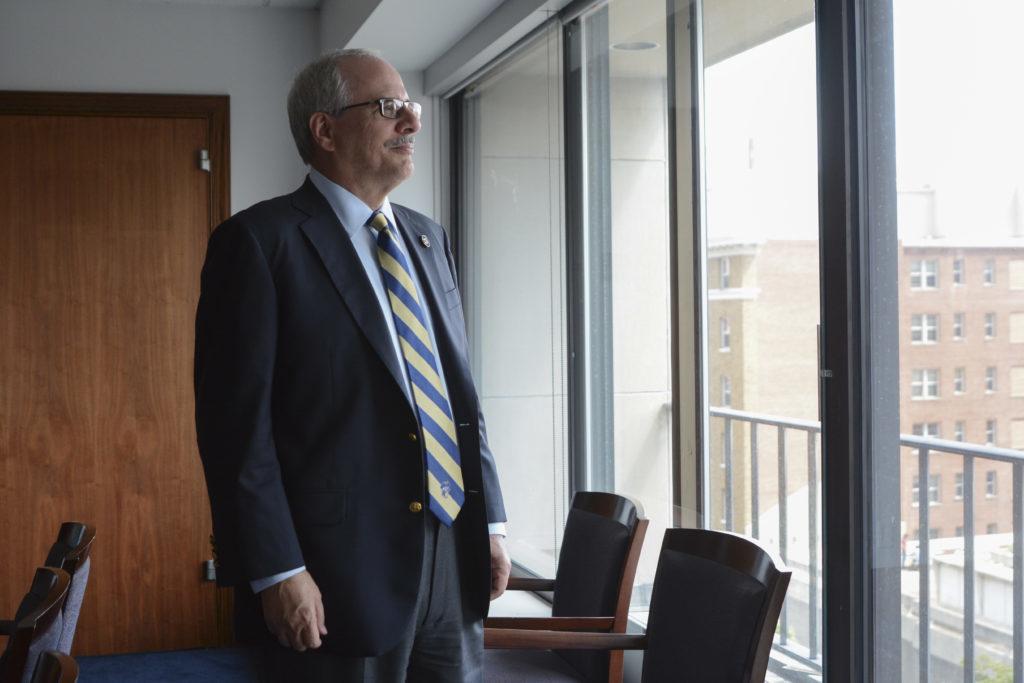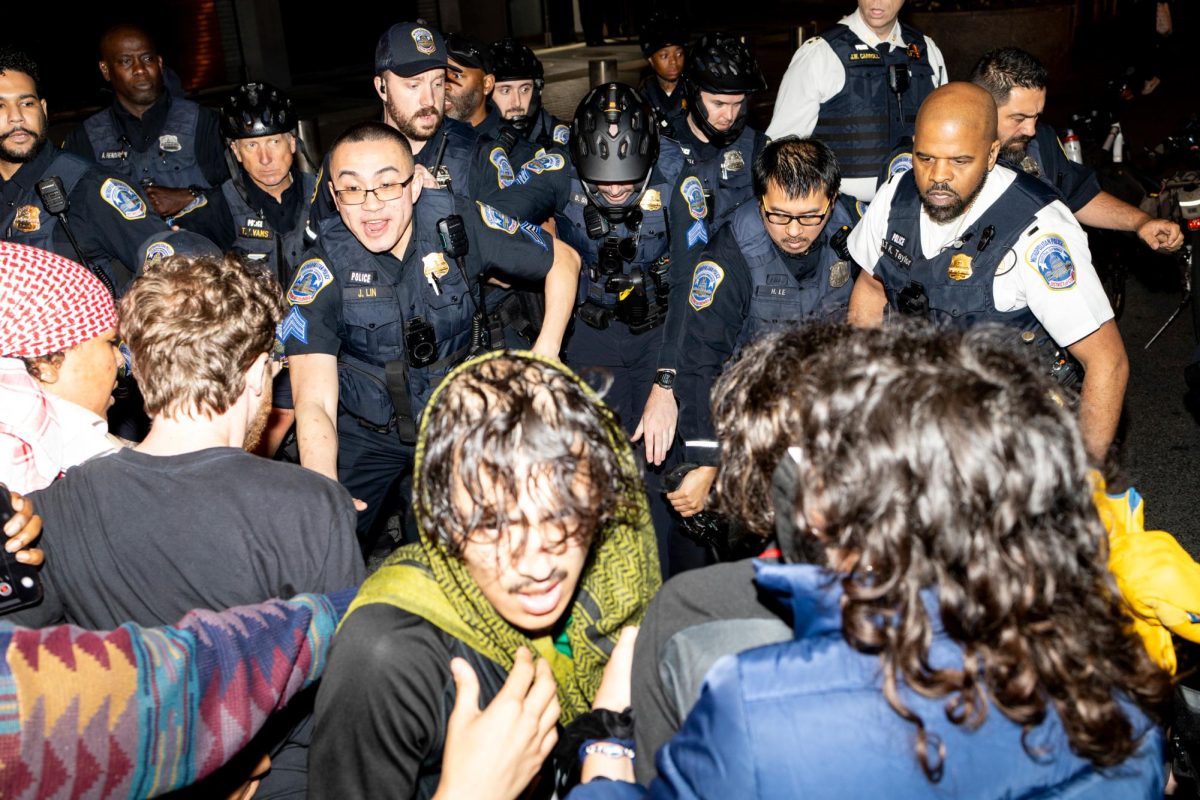University President Thomas LeBlanc committed GW to upholding one signature element of Obama-era sexual assault policy earlier this week, but experts said GW – and universities nationwide – face limited options if they choose to directly challenge new guidelines from the Trump administration.
LeBlanc released a statement Monday saying the University would remain committed to the “preponderance of evidence” standard in deciding responsibility in Title IX cases as set by the 2011 “Dear Colleague” letter, which set a high bar for colleges and universities to follow in preventing and punishing sexual assault cases.
“I want to make clear to all members of our community that we have no intention of removing the support currently in place for survivors of sexual assault,” LeBlanc said in the statement. “We will continue to take allegations of sexual misconduct and sexual violence very seriously.”
The “preponderance of evidence” standard is still allowed under new Title IX guidelines issued by the Department of Education last week, but experts said the move could commit the University to take future stances against Education Secretary Betsy DeVos and her effort to give those accused of sexual assault more latitude to defend themselves, a decision that could eventually lead to a loss of federal funding or more federal investigations.
LeBlanc said Monday that officials would “carefully follow” DeVos’s planned changes to federal Title IX enforcement, but did not commit GW to any future action on Title IX. LeBlanc’s statement came after a group of alumni petitioned the University to directly condemn DeVos’s effort, which they said would harm sexual assault survivors on campus.
Experts say that while there might not be an immediate consequence for remaining loyal to the guidelines outlined by the 2011 “Dear Colleague” letter, which the Education Department rescinded last week, universities can face hefty fines and broad-scope investigations if they don’t follow final regulations on Title IX set by the Department of Education.
Peter Lake, the director of the Center for Excellence in Higher Education Law and Policy at Stetson University, said before worrying about losing federal funding, universities should be wary of backlash from the Education Department as officials gear up to potentially set more permanent regulations.
“The thing I’m wondering is will they come back to us later and say, ‘we kind of nudged you in one direction and you didn’t do it,’” Lake said. “That could be very serious.”
He anticipates that universities nationwide will use the interim guidelines now in place as an opportunity to take a stance for or against the direction the Trump administration has for Title IX, Lake added.
“I think everybody’s got to take their position on this,” he said. “I think a lot of schools will continue to do more than what they were doing before, some may use this as an opportunity to shift the things that they had been thinking about doing.”
Lake said while universities can expect to see changes with respect to the filing reports and how cases are decided, there is still a lot of uncertainty on college campuses about how Title IX offices will be reshaped by any federal changes.
Naomi Shatz, an attorney at Zalkind Duncan & Bernstein and an expert on Title IX enforcement, said before the Education Department releases permanent regulations, the public will be able to give their opinions, hopefully creating a broader dialogue on how to address sexual assault on college campuses.
“The process that comes next is a process in which the public gets to weigh in on any proposed rules, and I think that’s a really important process,” Shatz said.
Robert Shibley, the executive director for the Foundation of Individual Rights for Education, a nonprofit focusing on civil liberties in academia, said federal officials will likely begin more tightly enforcing new guidelines after final regulations from DeVos’s Education Department are released, and that universities face an “extremely serious threat” of reduced funding if they don’t comply.
“They’re going to be looking into the fairness of procedures from this point forward,” Shibley said about the Department of Education. “What I think GW would have much less leeway in is they’re going to have to follow the actual final regulations that come out.”
Shibley added that while there may be universities that oppose changes to Title IX enforcement, it will ultimately be in administrators’ best interest to comply with any formal regulations, because failing to meet these guidelines could mean an open investigation to examine if a university is following due process.
“I’m sure they’ll be some resistance to various aspects,” Shibley said. “I think what will be very interesting is to see what parts of due process universities aren’t currently delivering.”





